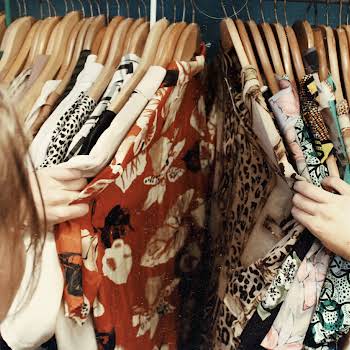By Lauren Heskin
08th Jul 2020
08th Jul 2020
Leicester garment factories servicing fashion brands like Boohoo are under fire over poor working conditions and pay as the city locks down once again following a spike in Covid-19 cases.
This week, Leicester, a city of 300,000 in England’s East Midlands, has been forced into a second lockdown due to a spike in cases of Covid-19. Roughly 10% of confirmed cases in the UK this week are in Leicester, in an area that makes up less than 0.5% of the UK’s total population.
Despite the severity of these numbers, for local organisations working within Leicester’s garment manufacturing industry, the news has not come as a surprise.
Leicester is home to about 1,000 garment manufacturers, who have frequently been the source of press exposées and government investigations over the years, criticising their treatment of workers, illegally low wages and poor working conditions. However, it wasn’t until the recent pandemic that the wider public has begun to look at the garment industry – and by association, fast fashion – in a new light.
Leicester’s Second Lockdown
In June, campaign group Labour Behind the Label released a report that found that many garment factories in Leicester remained open during lockdown. On account of increased online sales, quite a few remained at 100% capacity throughout the crisi. Thousands of people, mostly from ethnic minority backgrounds, were working in cramped and poorly ventilated buildings, where a virus such as Covid-19 is designed to thrive.
With the arrival of the pandemic, very few changes were implemented in these factories. The report found there was little social distancing or mask-wearing introduced, almost no evidence of sanitary stations and workers were expected to continue their long shifts.
As well as this, workers were told to come into work even if they were sick. One man who tested positive for the virus said he was told to come to work and not inform his colleagues of his diagnosis. The report also includes allegations of “furlough fraud”, with management telling staff they needed to continue working to claim the government furlough subsidy, which is designed for staff who have been temporarily laid off.
Experts believe that these conditions and the lack of support during the Covid-19 crisis have led to the spike in cases. Health Secretary Matt Hancock told the House of Commons that Leicester now has 135 cases per 100,000, three times higher than the next highest city.
The Fast Fashion Industry
So what does this all have to do with Boohoo and other big fast fashion retailers? Between 75% and 85% of clothes produced in Leicester are for Boohoo, who also own Nasty Gal and Pretty Little Thing.
A report by a journalist Vidhathri Matety for the Sunday Times, who went undercover into a Leicester garment factory just hours after the city was put back on lockdown, found that there was no social distancing being implemented, few were wearing masks properly and there appeared to be no sanitation stands or hand sanitiser anywhere.
The factory was producing clothes for Boohoo and Matety said one worker told him he could expect to earn no more “£3.50 to £4 an hour” for his labour-intensive work. A foreman he spoke to admitted he had been working there for five years and was only on £5 an hour. The minimum wage for someone over the age of 25 in the UK is currently £8.72.
This is in line with previous reports on the Leicester garment industry. The Guardian said that in a report to the government in 2019 on the topic, wage exploitation was considered an open secret, and that “the 1,000 or so factories and workshops in the city were paying below the minimum wage.” Often these workers were unaware or unable to wield their rights, trapped and intimidated into silence by issues of migration and job necessity.
Supply Chain Transparency
The companies don’t directly own these factories and one factory might service a number of brands. The lack of a clear supply chain and secrecy over the whole operation makes it difficult to regulate or even hold fast fashion accountable for factory conditions, but the poor product quality, quick turn-around times and tiny margins demanded by these big brands place factories under huge pressure.
Fallout
However, the combination of the Covid-19 shutdown and working conditions for garment workers in Leicester has caused a perfect storm of criticism. Thanks to public outrage, online stockists including Next and Asos have dropped the brand from their offerings pending an investigation. Boohoo share prices dropped by 15%, meaning the company has devalued by about £2 billion.
Following the release of Labour Behind the Label and The Sunday Times investigations, Boohoo released a statement saying it “categorically does not tolerate any incidence of non-compliance especially in relation to the treatment of workers within our supply chain”.
The brand also said they willing to work with local officials to raise standards because “we are absolutely committed to eradicating any instance of non-compliance and to ensuring that the actions of a few do not continue to undermine the excellent work of many of our suppliers in the area, who work tirelessly to provide good jobs and good working conditions.”
Today the company also announced a full-scale independent review into its UK supplier chains, investing £10 million into “eradicating malpractice”.
View this post on Instagram
Reality Check
These factories have enabled brands like Boohoo to capitalise hugely during lockdown, Boohoo proudly announced a huge jump in sales during lockdown, seeing a 45% increase through March, April and May, with shares also rising by 22%, and announced bonuses of up to £150 million for company bosses as a result. Clearly, very little of this wealth is trickling back down to its garment workers.
As well as Boohoo, other high street brands like Topshop, Nike and Gap have been heavily criticised in the last few months for refusing to pay its garment workers in places like Bangladesh, Cambodia, Vietnam and Malaysia, according to Clean Clothes Campaign, a non-profit fighting for garment workers globally.
The sad thing is, Boohoo’s ethics are hitting the news because of how they are affecting workers in the UK. But the truth is this is happening all over the world and has been for decades. If garment workers in the UK, a wealthy and influential country, can earn less than half of minimum wage, imagine the abuses suffered by those in countries with far less oversight and financial capability to enforce minimum standards.
Requiring quick production, cheap materials and huge quantities, monitoring supply chains is not a top priority for fast fashion brands with many having little or no oversight over their supplier chains. This means they have no way assuring under what conditions their clothes were made, or how much its maker was paid.
So much of retail has focused on the consumer, but it seems the tide is turning. We need to demand that brands look at not only at the needs of their buyers but also at the demands of their workers. To find out more, FashionChecker.org can give you information on individual brands and exactly who you are buying from.
Featured image via Boohoo.com
Read more: Rejina Pyo on her new capsule collection with Vestiaire Collective
Read more: Inside the first-ever season of digital haute couture
Read more: JW Anderson has released the pattern so you can knit your own Harry Styles cardigan























